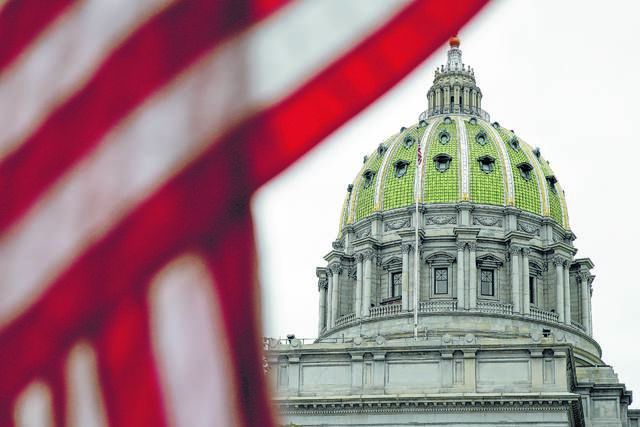WILKES-BARRE — Department of Human Services (DHS) Acting Secretary Meg Snead this week joined Public Utility Commission (PUC) Chair Gladys Brown Dutrieuille to announce the start of the annual Low-Income Home Energy Assistance Program (LIHEAP) application process for the 2021-22 season.
LIHEAP is a federally funded program administered by DHS that provides assistance for home heating bills so low-income Pennsylvanians can stay warm and safe during the winter months. Assistance is available for renters and homeowners. The LIHEAP application period has been extended for this season and is open from Oct. 18, 2021, to May 6, 2022.
“Nobody should ever have to worry that their heat will be shut off during the coldest and darkest months of the year. As winter approaches and we prepare to spend even more time indoors, these bills are only going to get more expensive,” said Acting Secretary Snead. “LIHEAP helps some of the commonwealth’s most vulnerable citizens – children, older Pennsylvanians, people with disabilities, and low-income families — make ends meet and keep their home safe through the winter. I encourage anyone who may need help, or anyone who has loved ones or neighbors who could benefit from this program, to apply for LIHEAP today.”
“Working together, LIHEAP and various PUC-required utility assistance programs help hundreds of thousands of Pennsylvania households stay connected, safe and warm,” said PUC Chair Gladys Brown Dutrieuille. “We strongly encourage families to apply for LIHEAP and #CallUtilitiesNow to explore all the available options.”
Due to the availability of funds through the federal American Rescue Plan Act, DHS is able to provide increased LIHEAP benefits for this season. This means that families will see an increase in the minimum LIHEAP cash grant from $200 to a minimum grant of $500, and an increase in the maximum cash grant from $1,000 to a maximum of $1,500.
Those who need the LIHEAP crisis grant — the benefit for people who meet the poverty limits and are in jeopardy of having their heating utility service terminated — will see the maximum crisis grant increase from $600 to a maximum of $1,200. LIHEAP is distributed directly to a household’s utility company or home heating fuel provider in the form of a grant, so the individual or households do not have to repay assistance.
The income limit for the program is 150 percent of the Federal Poverty Limit. For a household of four, this would be $39,750 gross income per year. Pennsylvanians do not need to know their own eligibility in order to apply for these programs. Those who applied and were denied previously but have experienced a change in circumstances can reapply.
During the 2020-21 LIHEAP season, 303,123 households statewide received $84,919,469 million in LIHEAP Cash benefits, and these households received an average season benefit of $280. 116,639 households statewide received $50,763,178 million in LIHEAP Crisis benefits, and these households received an average payment of $435.
State hosts discussion with teens on safe driving
Representatives from the Pennsylvania Department of Transportation (PennDOT), State Police, Department of Education and local education and law enforcement representatives held a face-to-face forum at Cedar Cliff High School in New Cumberland today, sharing their collective knowledge with students from Cedar Cliff and Red Land high schools to mark Teen Driver Safety Week in Pennsylvania.
“We can all do our part to make highways safer by working together to help new drivers gain valuable experience and knowledge,” said PennDOT Secretary Yassmin Gramian. “Parents and teachers are an integral part of establishing a mentality of safety behind the wheel amongst teen drivers.”
The forum was held to call attention to teen driver safety and share important information directly with teen drivers during the nationwide observance October 17-23. The question-and-answer format gave teens a chance to glean valuable information from knowledgeable sources they may not otherwise interact with. Motor vehicle crashes are a leading cause of death for teens.
From 2016 to 2020, there were:
• 82,066 crashes in Pennsylvania involving at least one 16-to-19-year-old driver resulting in 530 fatalities.
• Of those crashes, 45.6 percent involved the driver driving too fast for conditions (18,635 crashes), driver inexperience (7988), driver distraction (8,574) or improper/careless turning (7,490).
• A total of 39,399 crashes included one or more of these factors.
The risk of a crash involving any of these factors can be reduced through practice, limiting the number of passengers riding with a new driver, obeying all rules of the road, and using common sense.
“Parents and caregivers should encourage safe driving behavior long before their teen gets a learner’s permit by consistently modeling good habits behind the wheel,” said Colonel Robert Evanchick, commissioner of the Pennsylvania State Police. “Set a positive example by ensuring everyone in the car is buckled up, eliminate distractions in the vehicle, obey the speed limit and remember to drive defensively.”
PennDOT suggests that parents consider the following recommendations to help their children become safe and responsible drivers:
• Set a good example with your own driving habits.
• Have regular conversations with your teen about safe driving skills before they get their learner’s permit.
• Establish a parent/teen driving contract.
• Ride with your teen occasionally after they receive their license to monitor driving skills.
• Enforce observance of speed limits and other rules of the road.
• Strongly encourage your teen to avoid distractions behind the wheel, such as talking or texting on their cell phone.
• Limit the number of passengers they have in their vehicle.
• Limit dawn, dusk, and nighttime driving until your teen gains more experience and enforce a curfew. Remember, state law prohibits 16- and 17-year-olds with a junior license from driving between 11 p.m. and 5 a.m.
• Gradually increase the amount of time/distance your teen is permitted to drive.
Wolf unveils legislation to combat campus sexual assaults
Building on his successful It’s On Us PA initiative, Governor Tom Wolf this week unveiled a four-bill package that will further strengthen protections for students and combat sexual assaults on campuses. The governor has made Pennsylvania a national leader in addressing sexual violence and changing the culture on campuses across the state.
“We have made a lot of progress in combating sexual violence and harassment in schools, but we need to do more to ensure all of our students are safe,” said Gov. Wolf. “These four legislative proposals are the next step to preventing assaults and violence and ensuring victims get the help they deserve.
The governor’s four-bill package would:
• Enact a ‘yes means yes’ law that requires all post-secondary institutions to have policies with clear standards of what is and is not consent. California, Connecticut, Illinois, Minnesota and New York have similar laws to protect both partners by ensuring a mutual understanding.
• Schools also must have sexual violence awareness programs and agreements with local rape crisis centers and domestic violence programs so survivors get the academic, living and other accommodations that can help them stay in school.
• Strengthen protections for victims of on-campus crime by requiring the schools to inform victims of their rights and services and to provide protective accommodations or protective measures, if requested by the victim.
• Teach middle and high school students to know and prevent dating violence, sexual assault, sexual harassment and stalking.
• Create a task force to study sexual assault, dating violence, domestic violence and stalking in grades 6-12 and post-secondary institutions.
- Ryncavage: Permanent repair underway at Kirby Avenue railroad crossing - April 17, 2024
- RNC, PA GOP issue statements on Biden’s visit to Pennsylvania - April 16, 2024
- President Biden to return to his hometown on Tuesday - April 15, 2024
Reach Bill O’Boyle at 570-991-6118 or on Twitter @TLBillOBoyle.





